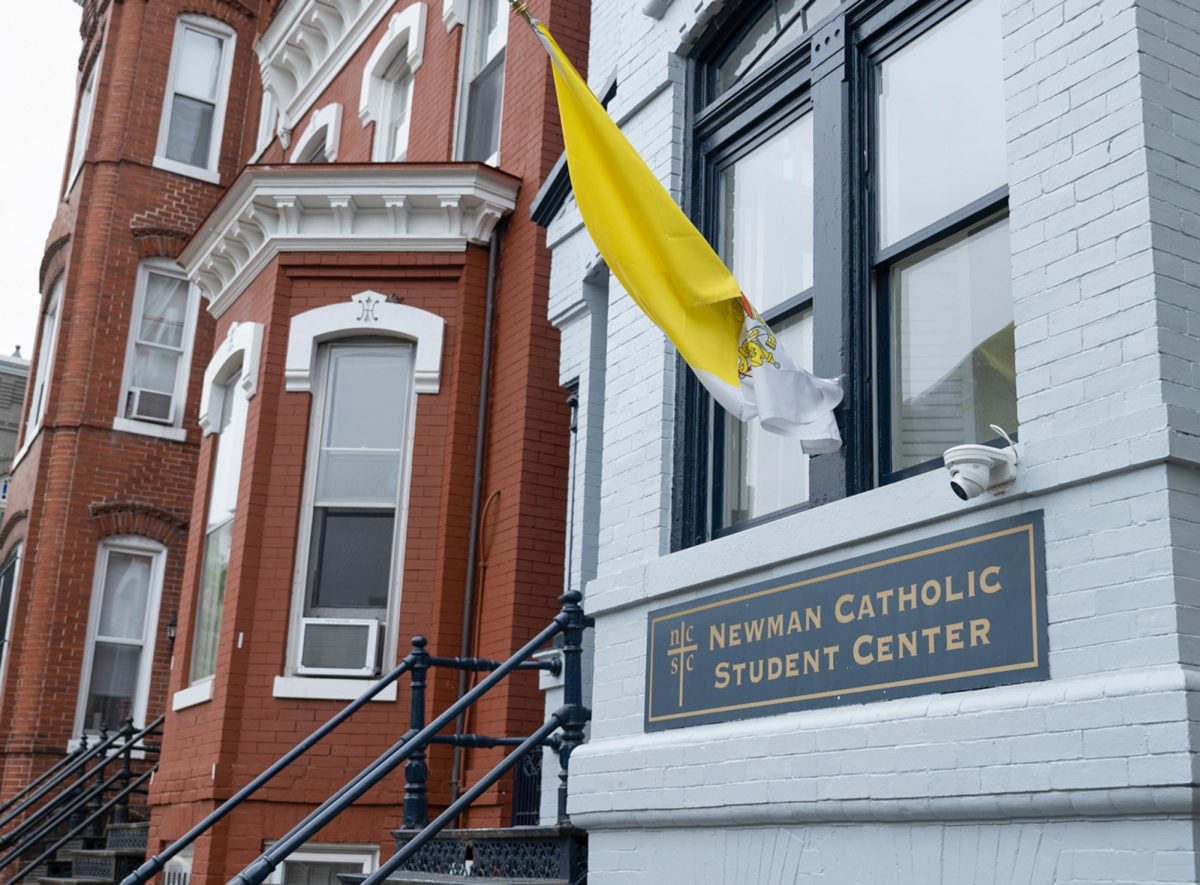After getting laid off during the pandemic along with many other tipped employees in the service industry, Ryan O’Leary decided to launch an initiative to give tipped workers livable wages.
O’Leary, the chairman of tipped worker advocacy group Committee to Build a Better Restaurant Industry, started working as a tipped employee 11 years ago at Tysons Corner, Virginia before balancing a job at The Hamilton with political organizing just ahead of the onset of the COVID-19 pandemic. He said getting laid off due to harsh financial impacts felt by the restaurant industry at the time prompted him to reach out to One Fair Wage, a campaign devoted to ending subminimum wages, to start organizing advocacy efforts against the tipped wage system.
“We realized that, given the pandemic, given the fact that this had already been proposed and succeeded on the ballot before the will of the people was overturned by the Council, it seems like it was high time to reintroduce this and try to get tipped workers in D.C. full wage plus tips on top,” he said.
Initiative 82, which O’Leary filed with the D.C. Board of Elections in June, would raise tipped workers’ wages by about $2 per year until they equal D.C.’s standard $16.10 per hour minimum wage by 2027. In 2018, D.C. voters passed a similar initiative that the D.C. Council overturned, opting for what they said to be better policies to support tipped workers, like creating an anonymous tip line for workers to report stolen wages, which never received funding.
With the elimination of the tipped minimum wage – which totals $5.35 per hour – back on the D.C. general election ballot, restaurant management and labor advocates are split on the measure. Some welcome an increase to workers’ base earnings, while others fear locals may struggle to find tipped jobs and would earn less from customers who leave less gratuity with higher prices if the initiative is passed.
O’Leary said the current tipped minimum wage makes personal budgeting for basic weekly needs difficult for tipped workers because their pay is inconsistent depending on factors outside of their control, like scheduling between busier and quieter shifts that may dictate the number of daily tips.
He said during his time as a tipped employee, his tips often fell below the minimum wage level. He said managers seldom provided a tip credit to ensure their employees earned the equivalent of minimum wage pay for each shift, which is legally required in D.C.
“Rarely ever do you hear of a manager even implementing a tip credit,” O’Leary said. “It’s not something that any server has ever actually experienced, you know, getting a higher hourly rate for a pay period because they didn’t reach the average in tips.”
Seven states have implemented the standard minimum wage since 1975, including California, Washington, Oregon, Nevada, Minnesota, Alaska and Montana, all of which have experienced declines in racial and gender pay gaps as well as lower rates of poverty and on the job harassment.
O’Leary said raising the minimum wage for tipped workers also benefits businesses because it lowers employee turnover rates, saving businesses time and money they would spend training new employees, which he said can cost thousands of dollars.
“When you pay everybody a fair wage with tips on top, they generally stay where they’re working, which saves the business owner money, but also, it just makes the businesses themselves more resilient to economic changes,” O’Leary said.
Geoffrey Tracy – the founder of Chef Geoff’s restaurant group, a D.C. based chain of comfort food eateries – said tipped workers can earn beyond the minimum wage threshold, depending on the tips they receive in a given night. He said at his restaurant, employees tend to make $30 to $40 per hour.
Chef Geoff’s, which has locations in West End and Cathedral Heights, offers entrees ranging from $15 to $34.
Tracy said eliminating the tipped wage strips employees of the opportunity to earn higher pay through tips, while others prefer to receive a fixed wage. He said restaurants will need to add a service charge to customers’ bills to cover the cost of higher wages, which will reduce gratuities and limit servers to roughly the same total pile of earnings.
“For servers, what we’ll do is we’ll change the way they are paid, meaning that more of their money will come on their weekly or bi-weekly paycheck,” Tracy said. “And they will actually have less take home money than what they have right now.”
Alex Morash, the director of policy and communications at One Fair Wage who worked as a tipped employee at a friend’s restaurant in Rhode Island, said eliminating the tipped minimum wage is crucial because tipped workers whom One Fair Wage has surveyed struggle to pay rent with their current levels of income. He believes customers will continue tipping despite the elimination of the tipped minimum wage, which would prevent a potentially negative impact by the initiative, if passed.
“People don’t tip based on checking the employment law ahead of time regardless of where they are,” he said. “You still tip in Nevada, and that’s a full one fair wage state.”
Morash said in other states where the tipped minimum wage has been eliminated like California, restaurant owners have managed to continue operating while paying full wages. Restaurants in states which require employers to pay the full minimum wage experienced higher sales than those in subminimum wage states, according to a 2021 report from One Fair Wage.
“If a diner in Alaska can pay the full minimum wage, the different establishments on 14th Street can definitely afford to pay the full minimum wage too,” he said.
Morash said tipped employment is growing among more establishments across the country, not due to a desire to increase employee earnings, but because employers want to pay their staff less money. He said that mindset hurts efforts from labor activists to increase the minimum wage, like the nationwide Fight for 15 movement that seeks to increase the minimum wage to $15 per hour nationwide.
“We’re actually in a dangerous situation coming up now where if we don’t eliminate the subminimum wage soon, we might see all the gains of the Fight for 15 movement of the last 10 years completely eroded because almost everyone is going to have tip jars and tips added to their bills and ways to try and lower wages for working people,” he said.
Fiona Riley contributed reporting.








